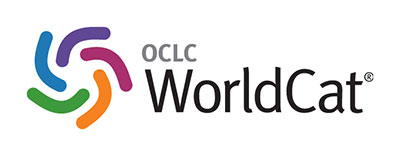Alternativas terapèuticas utilizadas por personal sanitario para prevenciòn de infecciòn COVID-19, Pasto-Colombia 2021
DOI:
https://doi.org/10.26871/killcanasalud.v8i2.1291Keywords:
Health personnel, Coronavirus Infections, Complementary Therapies, Intensive care unitsAbstract
Introduction. The health personnel of the Intensive Care Units - ICUs, seek to take care of themselves and protect themselves to prevent contagion using different measures. Aim. Identify the alternative treatments used by health personnel in the UCIS, of Pasto-Nariño 2020-2021 Methodology. Observational, descriptive, cross-sectional study carried out in a sample of 105 people who worked in the intensive care units of how many institutions, between the years 2020 and 2021. Results. 63.8% work in Adult Intensive Care UCIA, 22.9% in Neonatal Intensive Care NICU, 97.2% of workers live with a family member and 33% of the cohabitants took some medication to prevent COVID - 19, 61% of the workers who are in the ICUs consumed some medication to prevent COVID - 19, 41% ivermectin, 8% took some natural product, 6% vitamins, 4.8% antibiotics and to a lesser extent 2% took interferon, only the 3.8% consumed more than one medication to avoid COVID - 19. Conclusion. The Covid 19 pandemic had an impact on ICU staff. At the beginning of the pandemic there was no specific treatment or vaccine to prevent this disease, the vast majority of professionals to prevent COVID-19 used pharmacological treatments and natural products without necessary scientific evidence for their use.
Downloads
References
Calistri A, Salata C, Parolin C, Palù G. New generation sequencing in pathogen discovery and microbial surveillance. Expert Rev Anti Infect Ther. 2013;11(9):877-9. Doi: 10.1586/14787210.2013.827883. PMID: 24053269.
OMS. Preguntas y respuestas sobre la enfermedad por coronavirus (COVID-19). [Online]; 2019. Acceso 06 de 10de 2022. Disponible en: https://www.who.int/es/emergencies/diseases/novel-coronavirus-2019/advice-for-public/q-a-coronaviruses.
Statista. Número de casos confirmados de coronavirus (COVID-19) en América Latina y el Caribe al 8 de septiembre de 2022, por país [Online]; 2022. Acceso 05 de 11de 10. Disponible en: https://es.statista.com/estadisticas/1105121/numero-casos-covid-19-america-latina-caribe-pais/.
John Hopkins Medicine. Coronavirus (COvid-19) Information and Up Dates. [on line] 2022. Available in: https://hopkinsmedicine.org/coronavirus/index.html
Monterrosa-Castro , Dávila-Ruiz , Mejía Mantilla , Contreras Saldarriaga, Mercado Lara, Flores Monterrosa. Estrés laboral, ansiedad y miedo al COVID-19 en médicos generales colombianos. Revista de la Facultad De ciencias De La Salud. 2020; 23(2):195-213.
Melchor, Jiménez Sesma, Solano Castán J, Simón Melchor, Gaya Sancho, Bordonaba Bosque. Analysis of the psycho-emotional impact of the COVID-19 pandemic among nursing. Enfermería global. 2022.
Pieroni A,VI,PJea. Taming the pandemic? The importance of homemade plant-based foods and beverages as community responses to COVID-19. Journal of Ethnobiology and Ethnomedicine. 2020; 75: 1-9. https://doi.org/10.1186/s13002-020-00426-9
Li Y, Liu X, Guo L, Li J, Zhong D, Zhang Y, Clarke M, Jin R. Traditional Chinese herbal medicine for treating novel coronavirus (COVID-19) pneumonia: protocol for a systematic review and meta-analysis. Syst Rev. 2020; 9(1):75. doi: 10.1186/s13643-020-01343-4.
Maldonado C , Paniagua N, Bussmann R, Zenteno F, Fuentes A. La importancia de las plantas medicinales, su taxonomía y la búsqueda de la cura a la enfermedad que causa el coronavirus (COVID-19). 2020; 55(1): 1-5. Disponible en: http://www.scielo.org.bo/pdf/reb/v55n1/v55n1_a01.pdf.
Ochoa Yupanqui W, Rodríguez Lizana M. Fitoterapia altoandina como potencial ante la COVID-19. Revista Cubana de Investigaciones Biomédicas. 2020;39(4):e862. Disponible en: http://scielo.sld.cu/pdf/ibi/v39n4/1561-3011-ibi-39-04-e862.pdf
Perdomo Delgado. Contribuciones de la medicina natural y tradicional cubana al enfrentamiento de la COVID-19. Revista Cubana de Medicina Natural y Tradicional. 2020; 3(1):e151
Tarazona Romero. Condiciones de Trabajo y Salud en personal de UCI en Instituciones Hospitalarias de III y IV Nivel en Bogotá D.C. [Online]; 2020. Disponible en: https://repositorio.unal.edu.co/bitstream/handle/unal/75763/1018455174.2020.pdf?sequence=1&isAllowed=y.
Sánchez J, Peniche K, Rivera G, González E, Martínez E, et al. Psicosis del personal de salud en tiempos de COVID-19. Med Crit 2020;34(3):200-203. https://doi.org/10.35366/94900
Carranza R, Mamani O, Quinteros D, Farfán R. Preocupación por el contagio de la COVID-19 y carga laboral como predictores del malestar psicológico durante la emergencia sanitaria en personal de salud de Perú. Revista Colombiana de Psiquiatría. 2023; 52(4): 273-279. DOI: 10.1016/j.rcp.2021.06.005
Greenberg N, Docherty M, Gnanapragasam S, Wessely S. Managing mental health challenges faced by healthcare workers during covid-19 pandemic. BMJ. 2020;368:m1211. DOI: 10.1136/bmj.m1211
Popp M, Stegemann M, Metzendorf MI, Gould S, Kranke P, Meybohm P, Skoetz N, Weibel S. Ivermectin for preventing and treating COVID-19. Cochrane Database Syst Rev. 2021;7(7):CD015017. DOI: 10.1002/14651858.CD015017.pub2
Ganán-Barrionuevo A, Benavides-Rovalino E. Creencias y Mitos Sobre los Tratamientos Alternativos para Prevenir …










